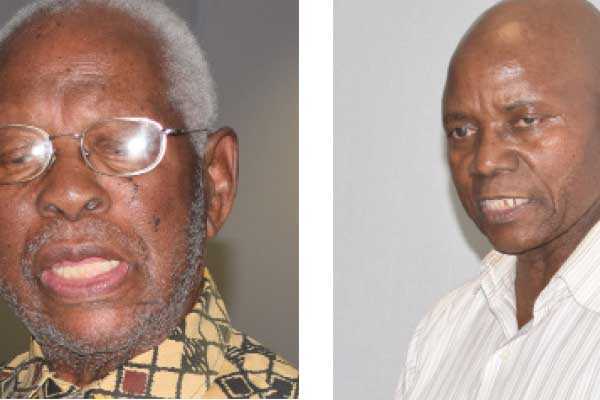Matenge, Magang defend choice of Gaborone as a city
Last week, University of Botswana historian, who is also the director of Confucius Institute, Professor Part Mgadla shocked the nation when he presented a paper stating that the decision to have Gaborone as the city of Botswana was a big error by the Legislative Council before the country became independent.
Mgadla, a historian of note at the UB says this in his paper entitled ‘A very grave and expensive error? The choice of a new site for capital of Botswana 1958-65.’ He argues that the minority members of the LegCo did point out that Gaborone had limited land in terms of expansion, predicting at the time that in future, it would not be able to expand to the north, east, south, or west without encroaching on tribal lands. “Today, fifty years later, that prediction could not have been more on the mark,” he says, emphasising that the decision to find an appropriate place for the location of the capital of Botswana was rushed on both part of the administration and members of the LegCo. “It is arguable whether if the capital had been located elsewhere other than Gaborone, so much money would be spent and continue to be spent on ferrying water supplies to sustain Gaborone” He also feels Gaborone is not central.
The lecture attracted not only UB staff but also members of the public, among them elders such as Gobe Matenge and David Magang. Mgadla managed to keep his audience glued as he explained how the LegCo members that decided on choosing Gaborone over other areas used majority rule. His argument is that ‘majority is not always right.’ But again, his main emphasis is that due to the pledged R4 million from the British government, the LegCo was under immense pressure. Taking too long to reach a decision either by undertaking expensive and complicated water explorations of the Okavango or those of Francistown area, and making other decisions did not guarantee that the British government would withhold its pledge indefinitely, he says.
In response, technocrat Matenge said he admired the hard work of the Legislative Council that chose Gaborone as the capital city. He said that he was impressed by their efforts and noted that at that time, there was no room to make national future plans. “They did what they were supposed to do. There was nothing wrong with the decision taken that time. Three years was long for us to hang that long,” he said about the duration given by the British government regarding the pledged R4 million. Matenge added that members of the Council deliberated without fear or favour and came to a reasonable conclusion.
For his part, former cabinet minister and businessman Magang said it was not time to decry so much the old but to move forward. He said there was nothing sinister about the decision since experts involved were foreigners. “At the time, reports appeared to be correct. The committee did not anticipate that the population would grow from a mere 5000 people back then,” he said. Former ambassador of Botswana to Namibia Chakabaka Matenge supported the two national elders and challenged Mgadla to focus on what is next. “Are you saying we should relocate it? What are we going to do with the billions spent on ferrying of water?” he asked.
Former UB vice chancellor Bojosi Otlhogile said that even though he agreed with the professor’s arguments on water, land and visibility, he however felt centrality was not an issue. “How many of the world’s capitals have taken centrality as a requirement?” he asked, revealing that Gaborone was located in the right place. According to Otlhogile, the Legislative Council ‘chose the wrong place for the right reasons but did not choose the right place for wrong reasons.’Mgadla strongly felt that Gaborone is a wrong capital city and that if government had enough funds, they could move it and find a place that is near central. “Can we imagine what will happen 50 years from now? If we don’t consider moving it, we are still going to spend millions and billions on ferrying water,” he said.
Altogether, a total of nine sites were considered, most of them along the railway line. The sites included Lobatse, Manyana, Gaborone, Bokaa/Pilane, Dibete, Mahalapye, Tuli Block, Shashe and Francistown. Minority in the LegCo felt Mahalapye would be the right capital city.






